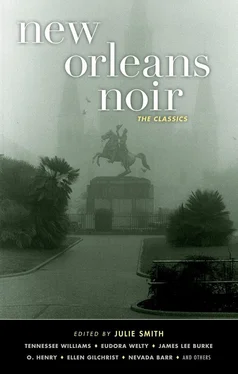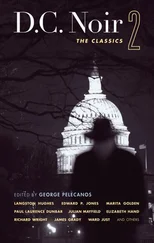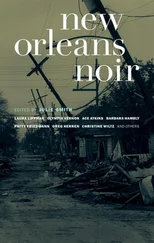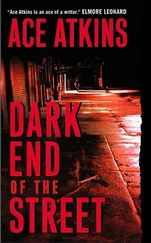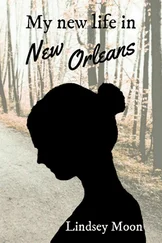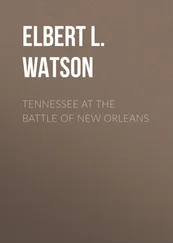Ace Atkins - New Orleans Noir - The Classics
Здесь есть возможность читать онлайн «Ace Atkins - New Orleans Noir - The Classics» весь текст электронной книги совершенно бесплатно (целиком полную версию без сокращений). В некоторых случаях можно слушать аудио, скачать через торрент в формате fb2 и присутствует краткое содержание. Город: New York, Год выпуска: 2016, ISBN: 2016, Издательство: Akashic Books, Жанр: Детектив, на английском языке. Описание произведения, (предисловие) а так же отзывы посетителей доступны на портале библиотеки ЛибКат.
- Название:New Orleans Noir: The Classics
- Автор:
- Издательство:Akashic Books
- Жанр:
- Год:2016
- Город:New York
- ISBN:978-1-61775-384-8
- Рейтинг книги:3 / 5. Голосов: 1
-
Избранное:Добавить в избранное
- Отзывы:
-
Ваша оценка:
- 60
- 1
- 2
- 3
- 4
- 5
New Orleans Noir: The Classics: краткое содержание, описание и аннотация
Предлагаем к чтению аннотацию, описание, краткое содержание или предисловие (зависит от того, что написал сам автор книги «New Orleans Noir: The Classics»). Если вы не нашли необходимую информацию о книге — напишите в комментариях, мы постараемся отыскать её.
takes a literary tour through some of the darkest writing in New Orleans history.
New Orleans Noir: The Classics — читать онлайн бесплатно полную книгу (весь текст) целиком
Ниже представлен текст книги, разбитый по страницам. Система сохранения места последней прочитанной страницы, позволяет с удобством читать онлайн бесплатно книгу «New Orleans Noir: The Classics», без необходимости каждый раз заново искать на чём Вы остановились. Поставьте закладку, и сможете в любой момент перейти на страницу, на которой закончили чтение.
Интервал:
Закладка:
The bartender put a cork in the bottle.
“I have to go myself,” said the fat man.
Once more the bartender raised his great hooded brows. For a moment their eyes met. The fat man pulled out an enormous roll of worn bills. He paid in full for all drinks and added a nice tip.
“Up on the catwalk you get the feeling now and then that you could put out your finger and make a change in the universe.” His great shoulders lifted.
The bartender, with his hands full of cash, leaned confidentially over the bar. “Is she a real ghost?” he asked, in a real whisper.
There was a pause, which the thunder filled.
“I’ll let you know tomorrow,” said the fat man.
Then he too was gone.
Desire and the Black Masseur
by Tennessee Williams
(Originally published in 1948)
Tremé
From his very beginning this person, Anthony Burns, had betrayed an instinct for being included in things that swallowed him up. In his family there had been fifteen children and he the one given least notice, and when he went to work, after graduating from high school in the largest class on the records of that institution, he secured his job in the largest wholesale company of the city. Everything absorbed him and swallowed him up, and still he did not feel secure. He felt more secure at the movies than anywhere else. He loved to sit in the back rows of the movies where the darkness absorbed him gently so that he was like a particle of food dissolving in a big hot mouth. The cinema licked at his mind with a tender, flickering tongue that all but lulled him to sleep. Yes, a big motherly Nannie of a dog could not have licked him better or given him sweeter repose than the cinema did when he went there after work. His mouth would fall open at the movies and saliva would accumulate in it and dribble out the sides of it and all his being would relax so utterly that all the prickles and tightenings of a whole day’s anxiety would be lifted away. He didn’t follow the story on the screen but watched the figures. What they said or did was immaterial to him, he cared about only the figures who warmed him as if they were cuddled right next to him in the dark picture house and he loved every one of them but the ones with shrill voices.
The timidest kind of a person was Anthony Burns, always scuttling from one kind of protection to another but none of them ever being durable enough to suit him.
Now at the age of thirty, by virtue of so much protection, he still had in his face and body the unformed look of a child and he moved like a child in the presence of critical elders. In every move of his body and every inflection of speech and cast of expression there was a timid apology going out to the world for the little space that he had been somehow elected to occupy in it. His was not an inquiring type of mind. He only learned what he was required to learn and about himself he learned nothing. He had no idea of what his real desires were. Desire is something that is made to occupy a larger space than that which is afforded by the individual being, and this was especially true in the case of Anthony Burns. His desires, or rather his basic desire, was so much too big for him that it swallowed him up as a coat that should have been cut into ten smaller sizes, or rather there should have been that much more of Burns to make it fit him.
For the sins of the world are really only its partialities, its incompletions, and these are what sufferings must atone for. A wall that has been omitted from a house because the stones were exhausted, a room in a house left unfurnished because the householder’s funds were not sufficient — these sorts of incompletions are usually covered up or glossed over by some kind of makeshift arrangement. The nature of man is full of such makeshift arrangements, devised by himself to cover his incompletion. He feels a part of himself to be like a missing wall or a room left unfurnished and he tries as well as he can to make up for it. The use of imagination, resorting to dreams or the loftier purpose of art, is a mask he devises to cover his incompletion. Or violence such as a war, between two men or among a number of nations, is also a blind and senseless compensation for that which is not yet formed in human nature. Then there is still another compensation. This one is found in the principle of atonement, the surrender of self to violent treatment by others with the idea of thereby clearing one’s self of his guilt. This last way was the one that Anthony Burns unconsciously had elected.
Now at the age of thirty he was about to discover the instrument of his atonement. Like all other happenings in his life, it came about without intention or effort.
One afternoon, which was a Saturday afternoon in November, he went from his work in the huge wholesale corporation to a place with a red neon sign that said, Turkish Baths and Massage . He had been suffering lately from a vague sort of ache near the base of his spine and somebody else employed at the wholesale corporation had told him that he would be relieved by massage. You would suppose that the mere suggestion of such a thing would frighten him out of his wits, but when desire lives constantly with fear, and no partition between them, desire must become very tricky; it has to become as sly as the adversary, and this was one of those times when desire outwitted the enemy under the roof. At the very mention of the word massage , the desire woke up and exuded a sort of anesthetizing vapor all through Burns’s nerves, catching fear off guard and allowing Burns to slip by it. Almost without knowing that he was really going, he went to the baths that Saturday afternoon.
The baths were situated in the basement of a hotel, right at the center of the keyed-up mercantile nerves of the downtown section, and yet the baths were a tiny world of their own. Secrecy was the atmosphere of the place and seemed to be its purpose. The entrance door had an oval of milky glass through which you could only detect a glimmer of light. And even when a patron had been admitted, he found himself standing in labyrinths of partitions, of corridors and cubicles curtained off from each other, of chambers with opaque doors and milky globes over lights and sheathings of vapor. Everywhere were agencies of concealment. The bodies of patrons, divested of their clothing, were swatched in billowing tent-like sheets of white fabric. They trailed barefooted along the moist white tiles, as white and noiseless as ghosts except for their breathing, and their faces all wore a nearly vacant expression. They drifted as if they had no thought to conduct them.
But now and again, across the central hallway, would step a masseur. The masseurs were Negroes. They seemed very dark and positive against the loose white hangings of the baths. They wore no sheets, they had on loose cotton drawers, and they moved about with force and resolution. They alone seemed to have an authority here. Their voices rang out boldly, never whispering in the sort of apologetic way that the patrons had in asking directions of them. This was their own rightful province, and they swept the white hangings aside with great black palms that you felt might just as easily have seized bolts of lightning and thrown them back at the clouds.
Anthony Burns stood more uncertainly than most near the entrance of the bathhouse. Once he had gotten through the milky-paned door his fate was decided and no more action or will on his part was called for. He paid two-fifty, which was the price of a bath and massage, and from that moment forward had only to follow directions and submit to care. Within a few moments a Negro masseur came to Burns and propelled him onward and then around a corner where he was led into one of the curtained compartments.
Читать дальшеИнтервал:
Закладка:
Похожие книги на «New Orleans Noir: The Classics»
Представляем Вашему вниманию похожие книги на «New Orleans Noir: The Classics» списком для выбора. Мы отобрали схожую по названию и смыслу литературу в надежде предоставить читателям больше вариантов отыскать новые, интересные, ещё непрочитанные произведения.
Обсуждение, отзывы о книге «New Orleans Noir: The Classics» и просто собственные мнения читателей. Оставьте ваши комментарии, напишите, что Вы думаете о произведении, его смысле или главных героях. Укажите что конкретно понравилось, а что нет, и почему Вы так считаете.
